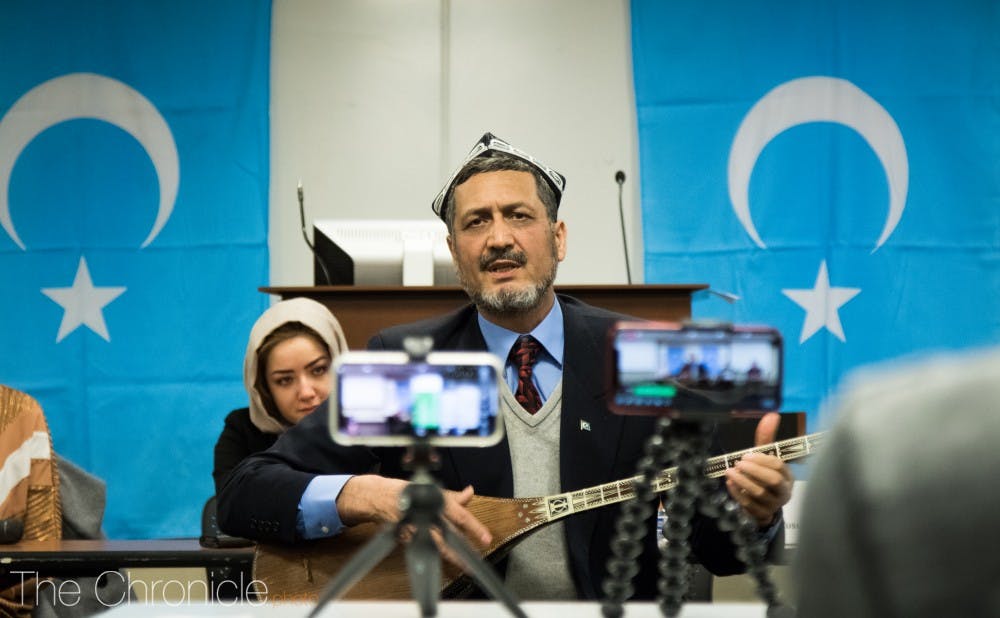A survivor of a Chinese internment camp for Uyghurs visited campus Monday to bring attention to the issue.
The Monday talk called “China’s Concentration Camps: What’s at Stake?” was organized by senior Aydin Anwar and Ralph Litzinger, associate professor of cultural anthropology, aimed to raise awareness of the issue among the Duke community.
It included testimony from Mihrigul Tursun, a Uyghur concentration camp survivor, as well as presentations led Darren Byler, lecturer and anthropologist at the University of Washington, and Anwar Yusuf Turani, Uyghur freedom fighter and Anwar’s father.
With this event, Anwar emphasized that she is trying to raise awareness about and convey a side of the Uyghur story often suppressed by the Chinese government.
"We’re trying to give voice to the Uyghur people who have usually been left out of this whole narrative,” she said.
The Uyghurs are a Muslim, Turkic-speaking ethnic minority mostly from East Turkestan, a northwest region of China renamed Xinjiang, or literally, “new territory,” after its occupation by the People’s Republic of China in 1949.
Anwar quickly noted that to the Uyghur people, “Xinjiang” represents a colonial name that perpetuates the erasing of unique and different Uyghur culture, history, language and identity, and thus referred to the region as “East Turkestan” for the rest of the event.
Her father then proudly performed the national anthem of the Republic of East Turkestan. Turani went on to passionately introduce the history of the region and ethnic cleansing.
He said that although Uyghur mistreatment had historical roots in the Mao era, it has been renewed in the modern day by Chinese president Xi Jinping through inhumane detainment campaigns, mass disappearances of Uyghurs and forced marriages between Uyghurs and the Han Chinese to weaken the Uyghur presence and identity.
“In short, the entire state of East Turkestan has become a dungeon for [its people]," Turani said. "If they are not locked in concentration camps or detention centers, they are immobilized by the massive security system set in place by the Chinese government."
Byler said that a driving force behind the modern discrimination is "terror capitalism," in which the group's reach is minimized to ensure economic and industrial security for China in the region.
Tursun said that, upon returning to China in 2015 as a new mother of triplets, she was immediately detained by airport police. She was taken to prison, interrogated for three consecutive days and held in solitary confinement for seven days.
The children were taken from her and they fell ill—so she was subsequently released, blacklisted and stripped of identification. Her children, she said, had been mysteriously operated upon when they were returned to her, and the oldest one was brought to her dead without an explanation.
“They didn’t answer me because I am nothing," she said. "There’s no need to answer me."
She said that she endured brutal detainment camps, psychological torment, and physical torture throughout the next few years before escaping to the United States last year. She has lost contact with her family in China, she said, as many of them are currently imprisoned.
“I still remember the words of the officers when I asked them what my crime was," she said. "They said, ‘Being a Uyghur is a crime.'"
Get The Chronicle straight to your inbox
Signup for our weekly newsletter. Cancel at any time.

Mona Tong is a Trinity senior and director of diversity, equity and inclusion analytics for The Chronicle's 117th volume. She was previously news editor for Volume 116.

